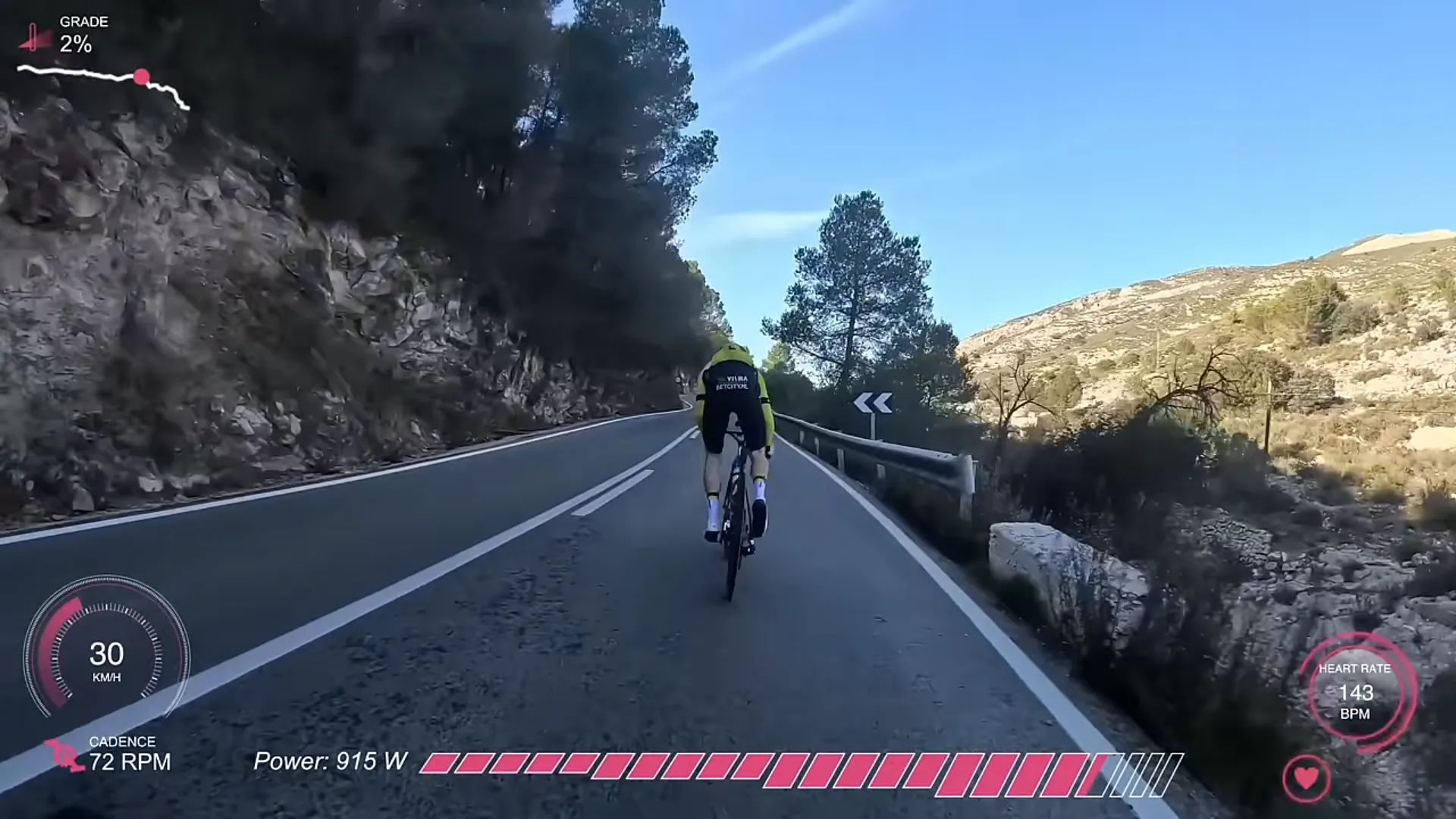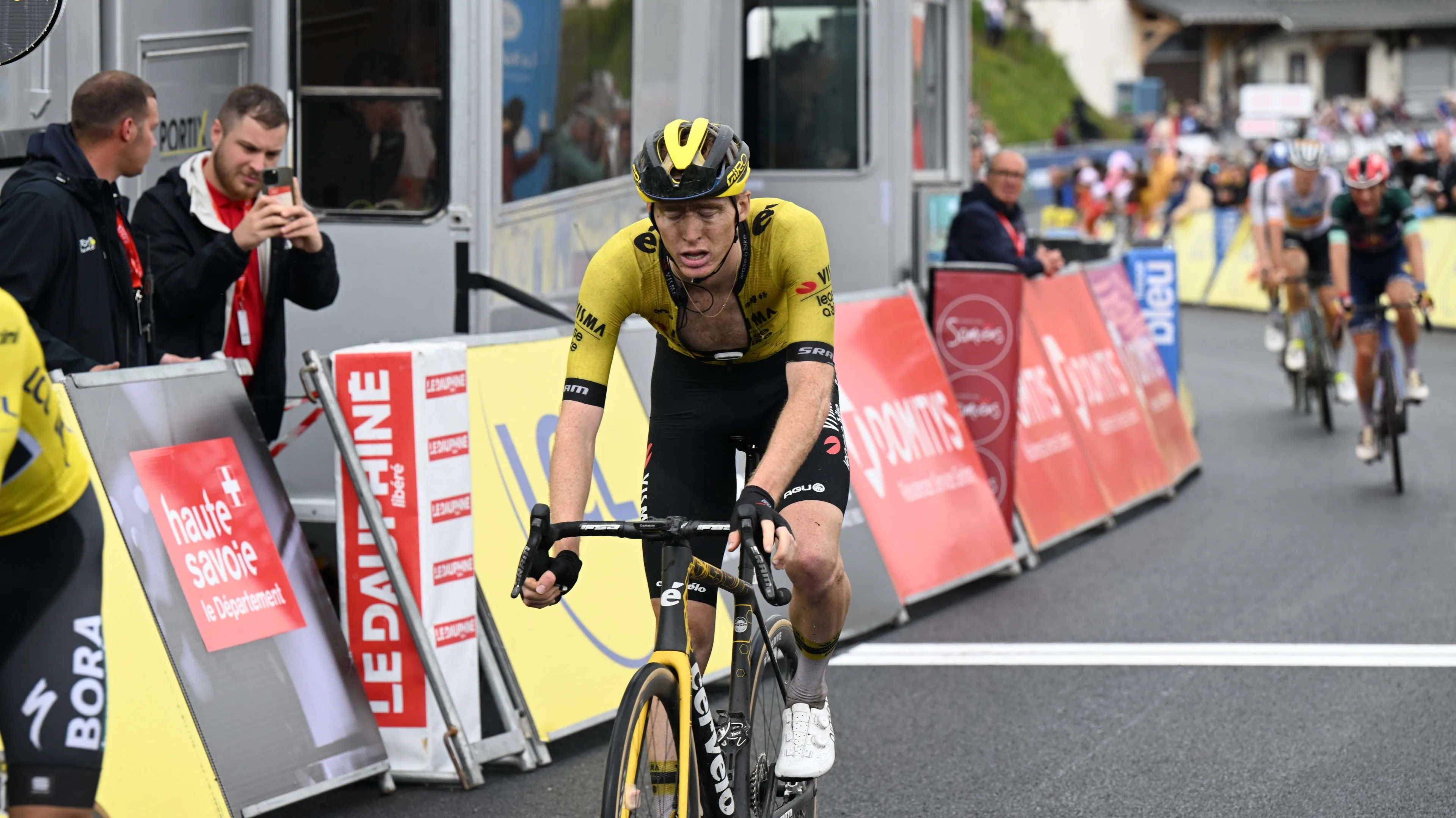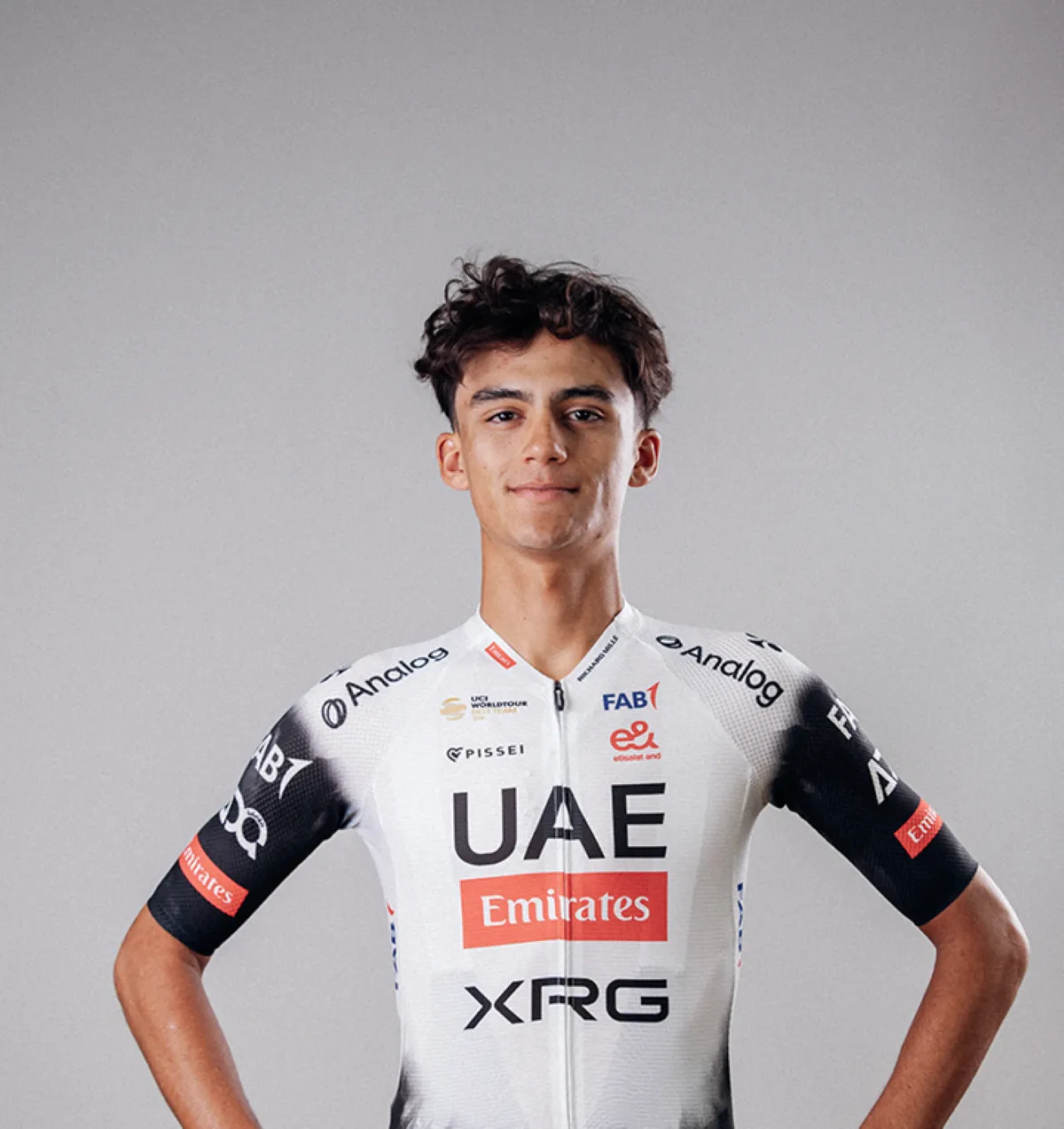UAE explores the future of cycling with self-developed AI system 'Anna': "The capabilities are crazy"
CyclingFriday, 03 January 2025 at 14:16
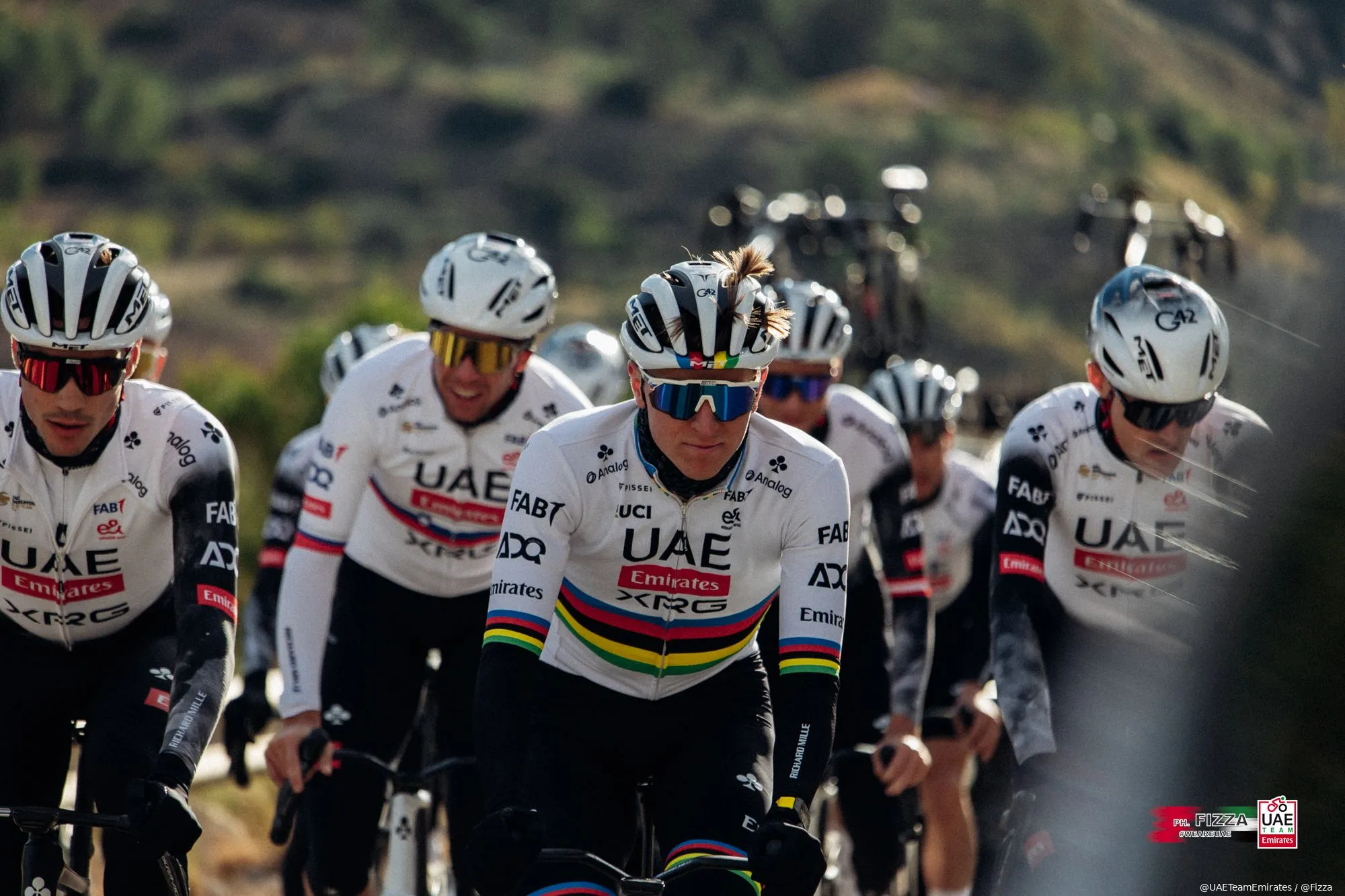
The WorldTour is on the brink of a revolution in performance management. UAE Team Emirates, the most successful team of 2024, is developing an advanced artificial intelligence system that could improve riders' performance and enable new training methods. According to insiders, the 'Anna' system offers unique views and could dramatically change the future of cycling.
"We've been working for years with our partners in the UAE on our own data platform. It's now getting to the stages that are really phenomenal," Jeroen Swart, performance coordinator at the UAE Emirates, told Vélo. "The capabilities [of the AI] are crazy. It's in the process of being transformative."
Text continues below photo
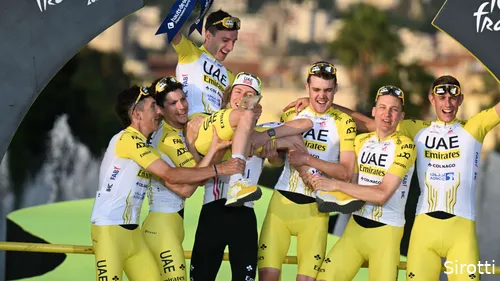
Already the right answers, now to answer the question
With the help of 'Anna,' the team can analyze complex data sets and translate them into practical strategies. These can range from race tactics to personalized training schedules and recovery plans. Swart stresses, however, that the real challenge now lies in asking the AI the right questions. "The hardest part now is thinking about what to ask. We're getting the answers, but we need to know what the questions need to be, and unique questions that are not immediately obvious. So that's really what we have to do now. Because we have the capability," he explains.
Cycling has long been a sport in which data plays a major role. Riders and coaches rely on many metrics such as power, heart rate, aerodynamics, nutrition and sleep data. But as Dan Lorang, performance chief at Red Bull-Bora-Hansgrohe, points out, connecting all this data remains challenging.
"It would be a huge next step if we could bring together all this data we collect that lives in different places," Lorang says. "If we could understand how each variable influences and changes each other would change our entire approach. Being able to bring it together in one place and to get information and predictions out of it would be a massive breakthrough."
At the UAE Emirates they have already embraced this challenge. Their AI system can run simulations and create alternate realities where riders such as Tadej Pogačar can virtually race in simulated versions of races like the Tour de France.
Text continues below photo
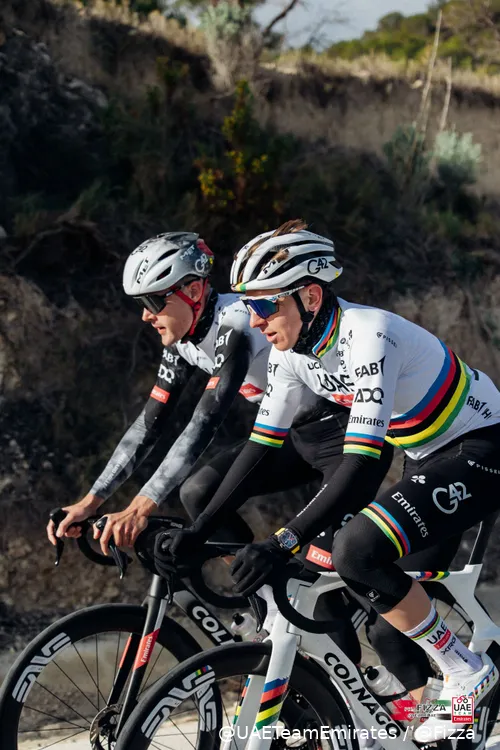
Will Pogacar with AI-generated training schedules get even better?
Experiments and guesswork will not be part of cycling in the future
According to performance experts such as Stephen Barrett, trainer at Decathlon-Ag2r La Mondiale, the future of cycling lies in micro-training. This means giving each rider a fully personalized training program based on how his or her body responds to specific stimuli.
"However, riders are all at different stages of development and progressing at different levels. You can't just use the same ideas for two riders because they can hit the same watts-per-kilo – especially now that everything is so marginal. Being able to better use what data we have on each individual could change that. We have to keep pushing forward with all this information that we have to figure out what works for each specific rider. And we need to be able to figure it out quickly in the athlete's career." Using artificial intelligence, trainers can largely avoid experimentation and guesswork. AI can provide certain insights and refine workouts faster.
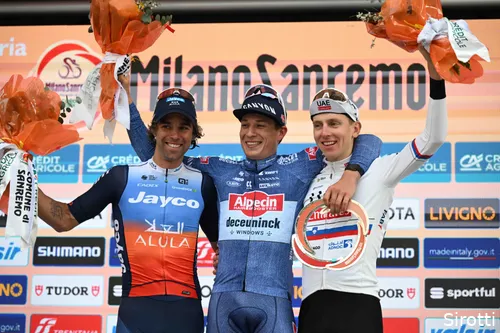
Pogacar finished third at Milan-Sanremo in 2024
How does Pogacar win Milan-Sanremo?
The idea of integrating artificial intelligence into cycling is not limited to the UAE. Other teams, such as Visma-Lease a Bike and Red Bull-Bora-Hansgrohe, are also working on innovative technologies. Although they do not yet have programs similar to 'Anna', Swart emphasizes that this is only the beginning of what is possible.
UAE Emirates is ahead of its competitors thanks to its significant budget and technological developments in the UAE. The team uses alternate reality and 3D simulations to analyze performance and race insights. "They brought up a 3D profile of one of the stages of the Tour. And then we could ask 'Anna' to show us how the race unfolded using little miniature cyclists. It could tell us key stories, particularly focusing on Tadej and the data it has on him. 'Anna' could show us how his performance was and how that unfolded in the race."
Swart thinks AI will soon be widely used in cycling and immediately become an essential component. "This is something in future where teams have to put more money. I think it's an element that everybody has to try to invest in,' he believes. Because the system is not yet perfect. For example, 'Anna' cannot yet answer all the questions, such as: how does Pogacar win Milan-Sanremo? 'The most interesting answers from AI? I think we will find that out in the future," Swart concludes.
Read also
IDL-productions

Last year, he was spot on: Lidl-Trek team leader De Jongh names his spring surprise for 2026

Attila Valter on why he left Visma | Lease a Bike: 'If it is what it is after three years, its not going to change'

Still in black, but soon in colorful Lidl-Trek jersey: Juan Ayuso praises new environment

Bouwman not afraid to change at 32 after first disaster year outside of Visma: 'Have to be honest with myself'

Sanremo, a world title and the yellow jersey: Michael Matthews escaped death - and that reignited his spark
Latest Cycling News
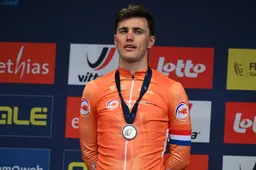
Tour chances of Kooij, role distribution and ambitions: sprint leader Mark Renshaw is delighted after introductions at Decathlon

Why UAE won't let Del Toro take revenge for failed Giro: 'What if he were to finish second?'
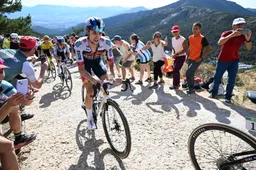
Hindley about cutthroat competition at Red Bull-BORA-hansgrohe: 'Adapt or die, basically'
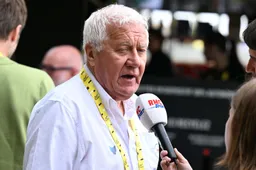
Is Evenepoel better off at Red Bull-BORA-hansgrohe? His old team boss has doubts: 'You can't buy the Tour'

After Gee's transfer announcement, NSN Cycling Team presents two new reinforcements, including trusted Girmay-helper
Popular Cycling News

🎥 Pogacar already focused on Milano–Sanremo: World Champion goes all-out on the Poggio

If Vingegaard does the Giro, he’ll face a dangerous Red Bull duo: "Good Giro for a contract"

Finally an end to all rumours: Derek Gee has found a new team and signs contract through 2028

A winner in the Giro and Roubaix: are comparisons between Jakob Omrzel and Tadej Pogacar justified? 'More of a climber'

After Gee's transfer announcement, NSN Cycling Team presents two new reinforcements, including trusted Girmay-helper
Latest Comments
- Those events are mental rest for him. Fun, without expectations. *Sagan lost his abilities because he gained weight and got lazy. Pogi will likely retire before that has a chance at happening.Veganpotter14-12-2025
- Ah, the consequences of riding for Israel.Veganpotter11-12-2025
- Pidcock could follow everyone but Pogi while finishing 3rd. No second place rider this season😃Veganpotter16-11-2025
- Now the Palestinian protestors can stop their whining. Trump came to the rescue. So they can now STFU and go back to waving the rainbow flags.raufus15-10-2025
- Cracked the code lol. If it was that easy to 'crack the code' jonny Vegas would be charging up the Kwaremont giving Pog a dose of his medicine. Evenepoel can't match pog on a climb and neither can mvdp. Anything with a half difficult climb and Pog smashes the field. Even on flat(ish)parcours like Roubaix it came down to a mistake and crash by pog to definitively crown mvdp. MSR is the only one that Pog probably won't win.kevpt10-10-2025
- We've seen this movie before. I think Pogacar is doping.DeadBlow10-10-2025
- 👍Bea08-10-2025
- 👌🏻Bea08-10-2025
- What the data doesn't show is how much of an effect drafting had for evenepoel. Pogacar went with del toro at 100km whilst Evenepoel was still in the bunch. Despite the bike changes he still had a lot of assistance getting back to the bunch. Pogacar then rode 60km solo whilst evenepoel rode with Healy/Skjelmose until going solo in thd last 10-15km. Thats ~20% less power / energy requirements for 45-50km. Apples and oranges...kevpt30-09-2025
- 👏👏Bea24-09-2025
Loading
